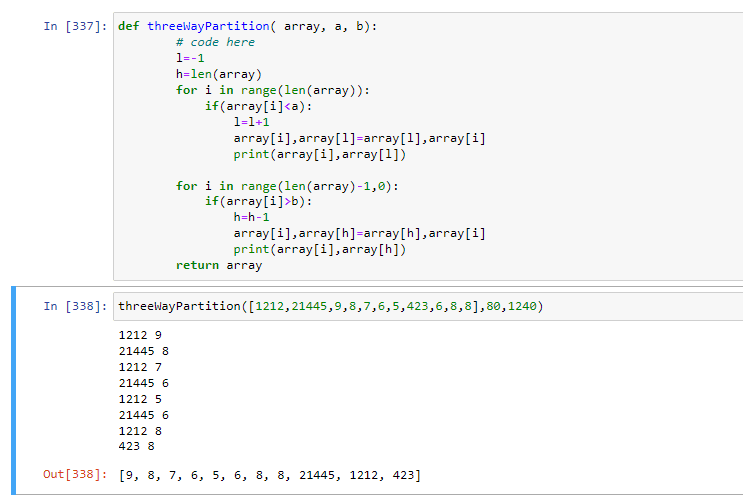Questions solved:
three-way-partitioning
two pointer approach.
left=left-1 increment only if find <a , right = max ,
decrement only if find do same for right .

Beautiful Solution :
len(s)==len(goal) and goal in s+s
0(n) possible through KMP (not learned yet)
As I am going to begin with LinkedList: Wanted to freshen up on OOPS concept(has been a long time since last used it)
`species='mammal'
class Dog():
def init(self,breed,name):
self.breed=breed
self.name=name
- init can be thought as constructor for the class
- it will be called automatically when u create instance of a class
- self->represents as instance of the object itself.
- attribute
- we take in the argument
- assign it using self.attrivute_name
- operations/acitons----->method is a fn that is inside of class that will work with object in some way def bark(self,number): print("WOOF! my name is {} and my number is {}".format(self.name,number))
my_dog=Dog('lab','Frankie')
- notice this we are getting an error as we havent given any positional argument
- because we are expecting breed parameter
- so lets pass one
- notice that attributes , never have () that because attributes it not something you execu
- it is something you call back
print(my_dog.breed,my_dog.name)
my_dog.bark(10)
called method
class circle:
#clas sobject attribute
def __init__(self):
self.pi=3.15
def circumference(self,radius):
return radius*self.pi*2
C=circle()
C.circumference(2)`






Top comments (0)